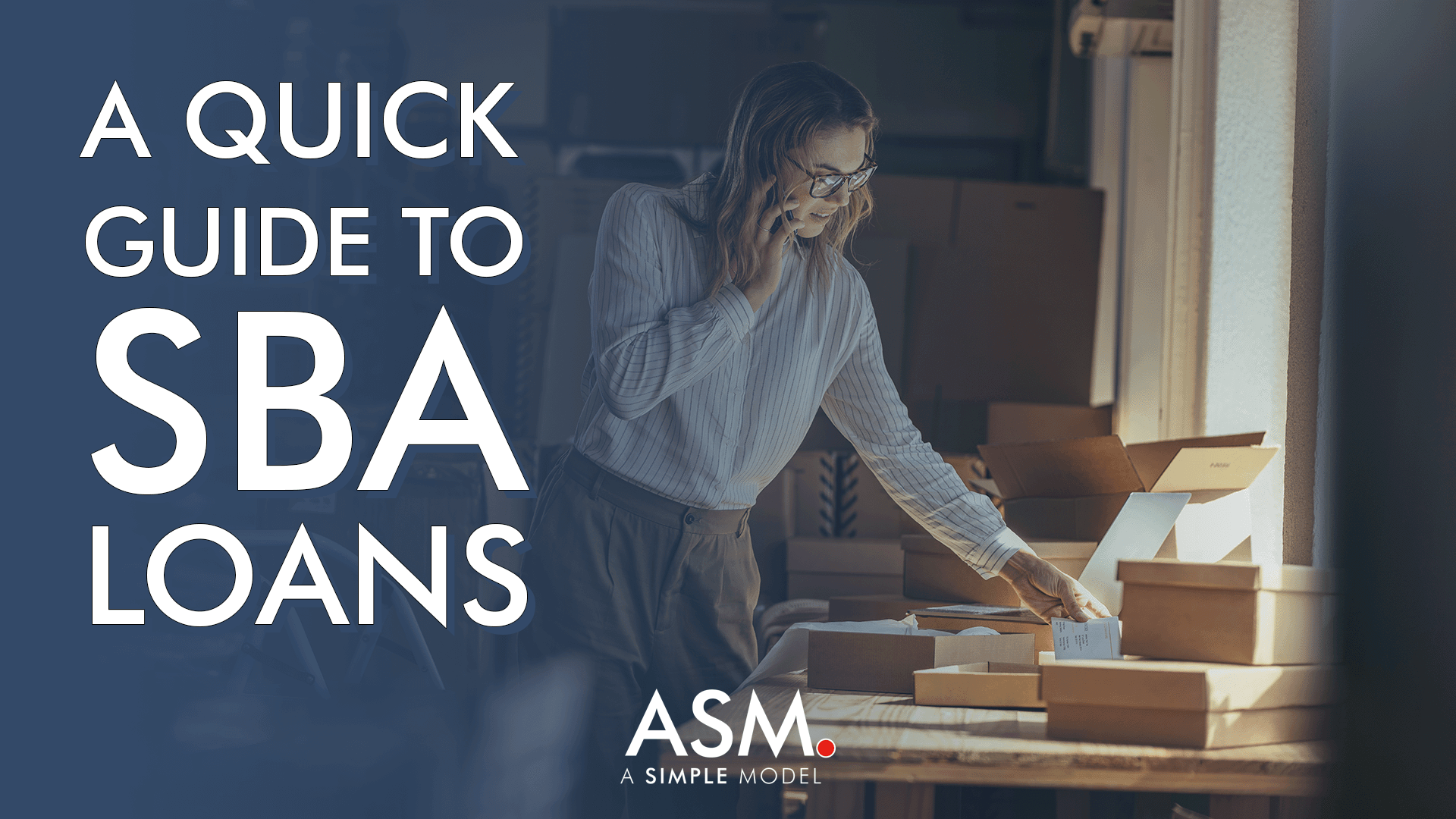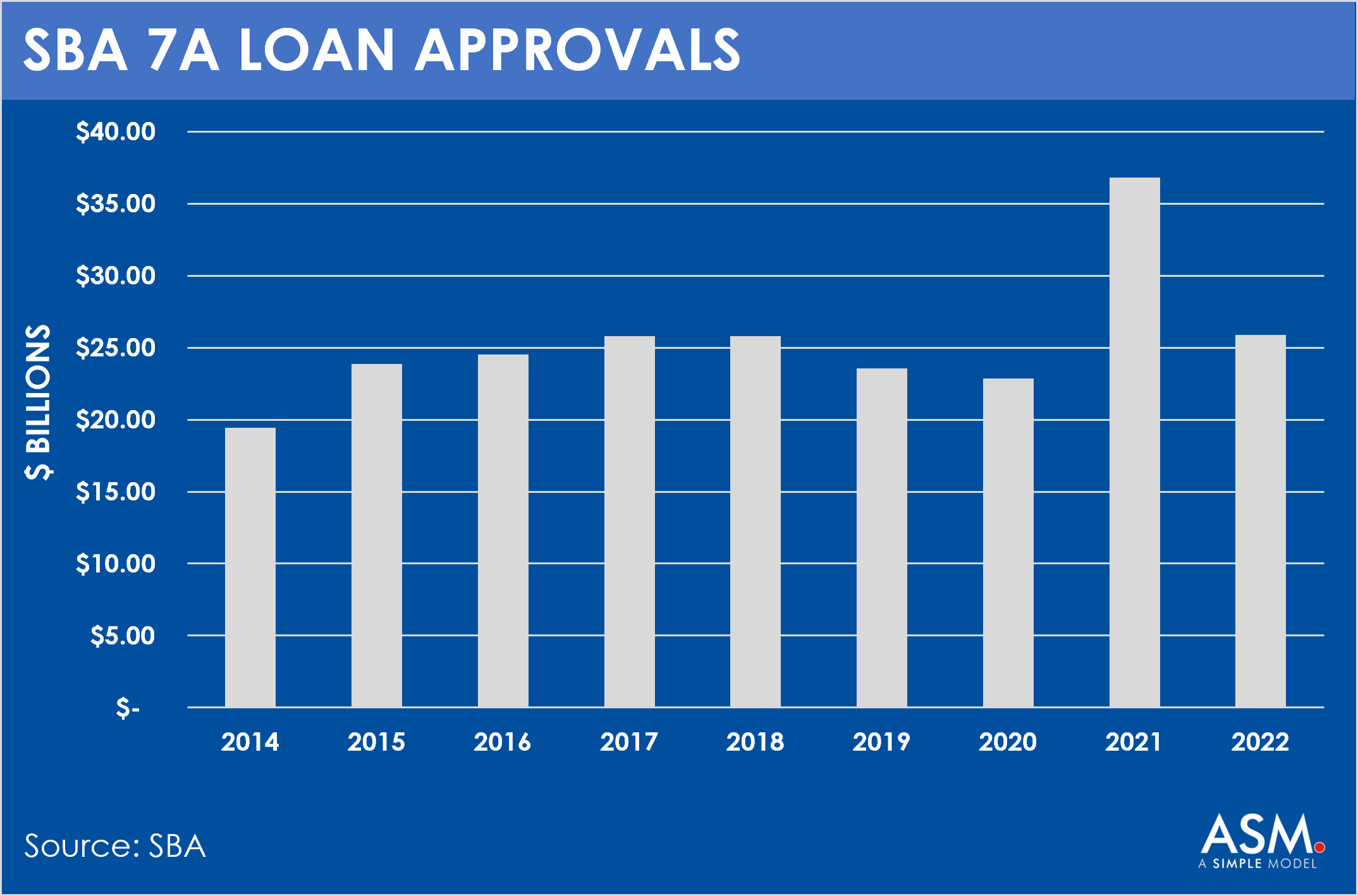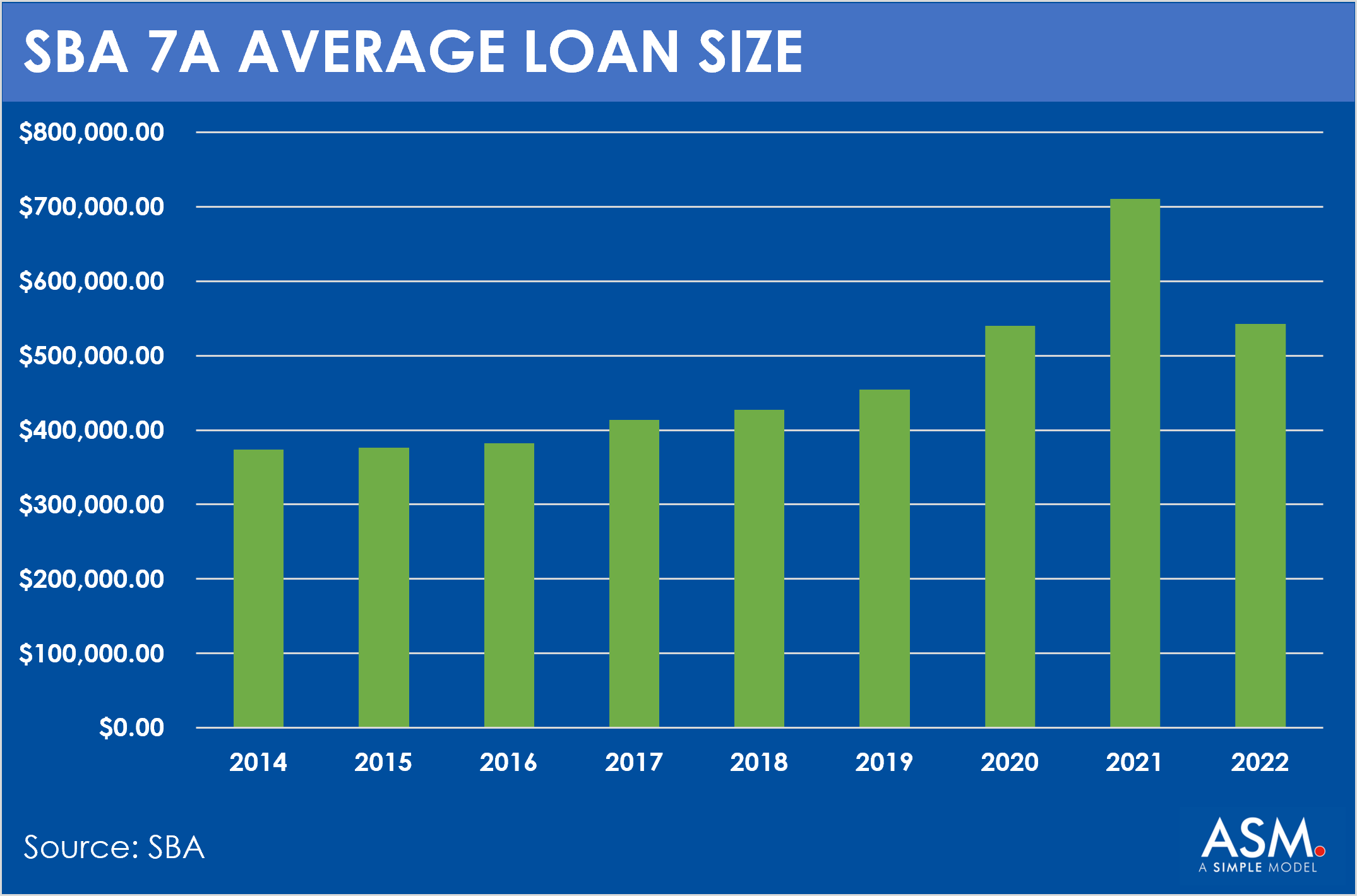
We talk quite a bit around here about leveraged buyouts (LBOs) and the complex, typically bank-arranged financing packages that accompany them, often in the context of deals with millions or even billions of dollars at play. That’s okay for a behemoth like Blackstone, which became the first private equity firm to reach a trillion in AUM. But what about those of us whose portfolios sum to a little less than thirteen figures, and who may not have Goldman Sachs on speed-dial for arranging a massive leveraged loan or other bespoke debt financing?
I have four words for you: Small Business Administration (SBA) loans. The SBA is a U.S. government agency tasked with supporting small business, part of which means helping ensure that investors looking to start, buy or grow a small business have access to the credit they need. And the principal way the agency does this is through the provision of SBA loans. These small business loans are issued by private lenders—often regional banks or credit unions, though larger institutions can make them as well—but partially guaranteed by the federal government. It may not be the first source of leverage that comes to mind when you think about a private equity deal, but independent sponsors can and often do use SBA 7(a) loans—the specific type of financing we will focus on in this post and the next—to acquire businesses.
It’s a popular financing source. As Figure 1 shows, total approval amounts have been running between $20 and $25 billion annually since 2017, with the exception of 2021, which was an outlier due to pandemic-related legislation, though it is worth noting that not all or necessarily even most of these funds are being used to buy businesses (as opposed to grow existing ones).
Figure 1. Aggregate SBA 7(a) Approval Amounts

Remember these are considered small business loans. And as Figure 2 shows, the average amount of an individual loan is roughly half-a-million dollars (with 2021 again being an outlier), though they can range as high as $5 million.
Figure 2. Average Size of SBA 7(a) Loans

The big question those of you not familiar with SBA loans may have is: why use them? As we’ll outline below, SBA loans often have lower interest, fees and equity down payments associated with them, due to their government guarantee. However, the application process is relatively involved, so expect some red tape. But the potential savings and other advantageous features of the loans can make the process well worth it. And while many SBA loan applications are rejected, approval is much more likely for applicants who are well qualified and understand how the process works.
Five Advantages of SBA 7(a) Loans
Availability: Depending on the circumstances, conventional bank loans are not always available to someone buying a business, or may not be available in the amount a sponsor needs to make a deal happen. In these cases, the government guarantee of an SBA loan—which ranges up to 75% of the loan amount for SBA 7(a) loans over $150,000 (up to 85% for smaller loans)—acts as a giant risk eraser from the point of view of the facilitating lender.
Low Interest Rates: SBA loans usually—though not always—have lower interest rates than other funding options. That’s because the SBA caps the rate at a given amount above a base lending rate. The interest rate is negotiated between the borrower and the lender, but always subject to this maximum. The cap varies depending on the amount and term of the loan. As of this writing, the link that follows shows the breakdown of maximum rates by loan amount for SBA 7(a) loans: Terms, conditions, and eligibility | U.S. Small Business Administration (sba.gov).
Reasonable Fees: Like other loans, SBA loans include fees, some of which can be bundled into the repayment and others of which must be paid upfront. Currently (2023), for instance, there is an upfront SBA guarantee fee which the lender can pass on to the borrower. For loans with maturities of 12 months or less, the maximum fee is .25% of the guaranteed portion. For longer term loans, the maximum varies between 2% and 3.75%, depending on the loan amount. Now for the good news. The SBA also prohibits many fees, such as separate origination fees, that a private lender might otherwise tack on at whatever level the borrower is willing to accept (though lenders are still allowed to charge a “packaging fee,” provided it is “reasonable and customary” and in line with fees charged on other similarly sized loans).
Long Durations and Covenant-Light: SBA loans can have a duration of up to 25 years for real estate or 10 years for equipment and inventory. Loans covering a combination of different assets—as with a business acquisition—can have a blended duration. By comparison, conventional small business loan durations often do not exceed 5 years. And SBA loans are usually covenant-light compared to conventional business loans. This is because the government guarantee makes it less likely a lender will demand, for instance, that the business maintain specific financial ratios throughout the loan duration, which provides significant additional flexibility in the event of a downturn.
Low Down Payments: We will cover this more in the next post, but SBA 7(a) loans can allow the buyer to put down as little as 5%, much less than the typical down-payment requirements for conventional loans, which might be two to three times this amount. Less of your own money in the deal means more leverage, which means the potential for greater returns.
The Bottom Line
SBA 7(a) loans are a widely accessible financing option for purchasing a small business. If approved, you will get a good interest rate, reasonable fees, and may have to put less of your own money into the deal. In other words, it’s leverage courtesy of Uncle Sam, and it may allow you to acquire a business when other sources of financing aren’t readily available or would demand onerous terms that will eat into your returns. But it is worth noting that, in order to take advantage of this funding source, there are certain basic requirements that you and your proposed acquisition must meet (7(a) loans | U.S. Small Business Administration (sba.gov)). We’ll get more into the nuts and bolts of these loans in the next post: The Nuts and Bolts of SBA 7(a) Loans.